Dr. Ravi Gundlapalli is the founder and CEO of MentorCloud. He has dedicated his life to helping people reach their full potential through the power of mentoring. With a background in engineering and global leadership, he combines technical expertise with a deep commitment to human growth. MentorCloud connects people across more than 100 countries and continues to grow as a global movement.
We invited Ravi for this interview because we are proud to collaborate with him. Our work together is guided by a shared belief in the value of mentorship. For the Maybach Foundation, mentoring has always been a way to carry forward the legacy of visionary thinking — supporting individuals who strive to make a meaningful impact, just as Wilhelm and Karl Maybach once did.
In this conversation, Ravi shares his personal story and the experiences that shaped his mission. He reflects on the power of mentoring people to change lives and to build stronger, more connected communities. His vision is bold and rooted in purpose.
Here’s the Interview between the Maybach Foundation (MF) and Dr. Ravi Gundlapalli (RG):
MF: You have dedicated your life to mentoring others and helping people unlock their potential. What first inspired that passion? Was there a moment or person that set you on this path?
RG: Throughout my life, I’ve always had the mindset of giving. I was part of the scouting movement where I used to serve, and even in my high school, I used to teach my fellow students as I felt teaching others is the best way to learn something very, very deeply. But the moment that really set me on this path, it was a life-changing moment when the flight I was on in Mumbai in late 2000s almost crashed into the helicopter that was carrying the then President of India, Mrs. Pratibha Patil.
Our flight was asked to take off, but then our pilot saw a helicopter landing on the exact same runway, so he averted the accident in less than 1.2 seconds before what could have been a mid-air collision. I was fortunate that the accident didn’t happen, and I kind of reflected on it and asked the question, „Why is it that I was given this additional day and years to live? What was that unfinished job?“
The next day, there was news about how the Indian president was saved, but I kind of felt, „How come nobody is talking about Dr. Ravi Gundapalli being saved?“ So that set me on this reflective journey. A few weeks later, when I came upon the idea of streamlining what I call the flow of human wisdom.
It didn’t come suddenly; I have a PhD in fluid mechanics where I streamline the flow of fluids. I worked in supply chain management where I dealt with the flow of products, so the flow of fluids or the flow of wisdom was almost like a natural evolution of what I have always done in my life but now applied to people. That was the turning point.
As you know, the world always has a plan for you. I met one of my first mentees, whose name is Srikanth Bolla. He was a blind student at the age of 17 who had the aspiration to go to MIT in Cambridge, USA. So, I was able to mentor him, I was able to help him get into MIT. He eventually graduated with honors from Sloan School and is now a successful entrepreneur.
So, I saw the magic of when the wisdom flows from people who have it to people who need it — magic happens. The incident of this you know, if airline crashed that didn’t happen, and soon after meeting someone who I was able to mentor and transform — these two moments that set me on this path.
MF: You have built a powerful vision through MentorCloud. What does mentorship mean to you and why do you believe it’s such a transformative force?
RG: To me, mentorship is the human-to-human transfer of wisdom. Humans have always been tribal; we’ve always thrived by sharing what we know with the people who need to know that information. This basic human trait is so integral to us being human that it really caught my attention. Mentorship to me is such a transformative force because it brings people together, creating that mechanism for humans to share their life experiences and wisdom to other humans that they care about.
When I define this mentorship as human-to-human transfer of wisdom, it is the human who wants to share what he or she knows to someone that he or she truly cares about. It is not about sharing wisdom on some social media channels; it is sharing with somebody you care. So „share and care“ is the mentor’s perspective, and for the mentee, it’s about trusting in that wisdom and that human being and then acting to be able to realize the results.
MF: The collaboration between the Maybach Foundation and MentorCloud is just getting started. Where do you see us going together in the next five years?
I feel extremely fortunate that our paths crossed between the Maybach Foundation and MentorCloud. When I read the Maybach Foundation’s book on mentorship and then kind of reflected on my own book, „The Art of Mentoring,“ it almost seemed like we were connected in spirit and in our mission. So, I see us as champions of mentorship, champions of human transformation, and the desire to do mentorship at scale because mentorship at scale means human transformation at scale.
In the next 5 years, I see us engaged in several joint initiatives: identifying the right kind of strategic partners, investors, and collaborators for us to be able to transform 10 million lives around the world. There are so many possibilities. The Maybach Foundation is very focused on certain social problems like homelessness and reducing recidivism in the US. Ensuring education access to college is another area. In all these situations, a good mentor can make a huge difference. Being able to do these kinds of projects at scale with the help of a technology platform like MentorCloud.
The next 5 years my big hairy audacious goal for us is to transform 10 million lives.
MF: AI is rapidly changing the way we live and work. How do you see it influencing the future of mentoring and how can we make sure it deepens, rather than replaces, real human connection?
RG: My mindset is we should think about how AI can be used to elevate people, not eliminate them. Because there are close to 8.5 billion people and presence of humans is what makes our life, our society, our family, our world so beautiful. Now I would always maintain that if the human connection did not matter, all the airports will be empty. Isn’t it? So, the way I see it is AI is a fantastic assistive technology that can make humans to be even more human.
So, the way we are looking at from a technology perspective is making the profiling easier so that mentors and mentees are able to truly describe the situation they are in so that the system knows exactly who are the best mentors or mentees and vice versa. And using AI to also guide them once they get on to a relationship — how can the tool support them with the right content, with the right kind of nudges, with the right kind of meetings and action items so that humans do focus on sharing of knowledge and wisdom and building a trust vs having to deal with all the tactical items around that mentoring relationship.
We’re also looking at AI for content recommendations and to make the experience hyper-personalized. Another interesting development is I have built my own avatar. I have created a digital twin of Dr. Ravi Gundlapalli, feeding into it my books, my blogs, my podcasts. Now there is an AI avatar or a digital twin of Ravi who can answer all the basic questions around mentoring around the importance of doing a Ph.D. etc. So imagine if experts in organizations can be available to younger employees even if they themselves are unable to meet due to their own schedule constraints. So AI is being integrated into MentorCloud in a way that makes every human more human, and for the additional time that we now get with the help of AI, I hope humans take the time to take a walk in the park, go visit an old friend or a relative, give somebody a hug, or share empathy — because all those things only a human can do.
MF: What advice would you give to young people with big dreams but limited access to resources?
RG: I love this question because it talks about young people with big dreams. I think the advice is: young people dream big because the world today is abundant with online resources, materials, courses, now chat GPT or Perplexity or so many AI-supported tools that give you access to information on anything in the world. You can earn full degrees or learn coding or learn design principles all without paying a penny.
So the best advice is to dream big and network with people. Opportunities don’t come if you are not visible. Though recently I was on a podcast when I said, „Visible people get noticed.“ It kind of sounds like a cliché, but that’s what it is. Young people: get out of your sofas or chairs and go out there to attend events, volunteer at any non-profits — that’s how you will meet other people who can magically open doors for you.
So, my advice is: keep learning, keep networking. Whatever opportunity you must do something, whether it is in a for-profit or a non-profit organization, just do it. And you will see the magic when people you come across are able to suggest new books for you, new connections for you, new opportunities for you, and that’s when the whole world will open up to eventually take you to where you really are enjoying what you’re doing.
MF: One story that stands out is your mentorship of Srikanth Bolla, who went on to become CEO of a successful company despite major challenges. What has that journey meant to you personally?
RG: My journey of mentoring Srikanth Bolla, a visually challenged student when I first met him at the age of 17 was very transformative for me. That journey taught me personally the value one human can bring to another human if that relationship is filled with compassion, empathy, sincerity, and honesty.
Srikanth being a visually challenged student, he also helped me to understand the difference between sight and vision. Here is a student who doesn’t have eyesight but has an immense vision for his life. I would say in my talks that I’ve come across so many people with perfect eyesight but no vision for their life.
The journey has truly taught me the difference between sight and vision. It really gave me the foundational principles and the motivation and the inspiration to build a technology and a methodology that can create paths for mentoring millions of people like Srikanth (sighted and not sighted) so that they are able to achieve their full potential.
MF: At the upcoming event, we are exploring how mentoring affects organizations. In your experience, how can mentorship directly help companies attract and keep great talent?
RG: All the research that I have done, not a single leader denies the impact of mentoring because when a new employee is matched with a senior executive, magic happens. The executive can impart the overall vision of the company, why he or she has been with the company for so many years, and really imbue that feeling of belonging.
So now the challenge is, how do we scale it? That is where many companies are still trying out, and that’s where MentorCloud is having a huge opportunity because everybody agrees mentoring works. It creates a sense of belonging. It accelerates the development of skills. It creates more collaboration. It removes silos, and it also allows people to develop themselves with the help of other people, so it eventually impacts the employee retention.
So mentorship when implemented at scale where employees anywhere in the world are able to find the most suitable experts and mentors to learn from, are able to get the support they need so they can see that transforming their own careers can mean higher engagement, higher retention, higher productivity, and all of this leads to an impact on the top line as well as the bottom line.
MF: For leaders who are new to mentoring programs: What is one small step they can take today that could make a big difference over time?
RG: One step is to make yourself available — 1 hour/month, 1 hour/quarter, 1 human being/year doesn’t matter. Start small, and I want every one of you leaders out there who are new to mentoring programs to experience the magic now. I would always say I can describe the taste of ice cream all day long, but it is but I but you that the true magic happens when you take the first spoon and put it in your mouth. Mentoring is like that — when you start seeing other people flourish in their own garden because of you, you feel so inspired and motivated.
The first step is to make yourself available. Don’t feel compelled that you must spend a lot of time in mentoring. Say that I would love to share what I know, I am happy to connect with one or two young people or entrepreneurs and put some boundaries — I only have 1 hour/month or 1 hour/quarter, doesn’t matter. Set your boundaries, but start by being available, and you will see the magic that will eventually inspire you to open more time and, of course, open your heart to truly share what you know with other people.
This might sound like very charitable, but I also say it in my talks in a very light-hearted way: being a mentor is the most selfish thing you can do. Selfish thing you can do, even though we are all trained to be not selfish, and the reason I say that is it will impact you leaders, it will accelerate your career, it will build your legacy, it will create recognition for you in the organization that you can now go to your boss and claim to be promoted. So it will directly impact your career. For example, one of our customers, Marriott International, they have seen the mentors in our programs where twice likely to be promoted than you know employees in other parts of the organization, so the promotion rates will be higher.
So the small step is to be available within the time limits that you are able to currently commit and experience the magic.
MF: When people leave the event after hearing you speak, what is the thing you hope they will remember most?
RG: Fact that I hope people will remember after my talk is that mentoring is human. It is not a rocket science. It is not something that you have to go to school for. It is not something that you need a manual to follow. It is human. Share what you know with the people you care about. I hope everybody will live with „Who do I know in my network that I can shine a light on? That I can share my wisdom and see them flourish and feel so blessed that I’m able to bring about this kind of transformation. So, the one thing to remember is mentoring is the most human thing you can do.
MF: Ravi, Maybach as a brand has a long history with India, and it was recently in the spotlight again at an event there. Coming from India yourself, how did it feel to see Maybach represented in that context? Does that connection between the brand and your home country have significance for you?
RG: In a recent podcast, I had shared that India is where the concept of mentoring first originated because India has a 10,000-year history of its heritage, and there are so many scriptures even before the rest of the world had fully operating civilizations. Indian scriptures talk about having a teacher or a guru and also having a mentor because a guru or a teacher teaches you how to do something (you know, how to hold a bow and an arrow, or how to write, or how to swim, etc., or how to drive — the ‚how‘ is taught by a teacher), but when and with what kind of responsibility is taught by a mentor. So these concepts are integrated into the Indian heritage and philosophy.
The fact that Maybach did an event in India really makes me feel happy because Maybach itself as an organization has imbibed mentoring in its culture. I have heard the stories of Uli’s great-grandfather being a mentee himself and eventually being a mentor for so many people. To see such a long-standing organization that has lasted for several generations and still carries the torch from one generation to the next with this idea of mentorship, and then Maybach doing an event in India where mentorship is so deeply integrated into the Indian culture, makes me extremely happy. I think we can do a lot of good together because we both believe in that transfer of wisdom from one generation to the next. India specifically has survived so many occupations, wars, and kept the tradition alive. It is only because of that human-to-human transfer of wisdom from one generation to the next that that so-called lineage in India you would say Parampara (the lineage) is so active. While many other countries have ended up in museums, and we don’t know those civilizations yet, India has maintained its civilization, civilizational history, and culture because of the human-to-human transfer of that wisdom — the arts, culture, and so on.
Maybach also has demonstrated the same kind of continuity of that legacy. So, it means a lot and it is very significant that Maybach has done such a wonderful event in India. I hope MentorCloud and Maybach can do many more events together.
MF: Thank you, Ravi, for sharing your journey and insights with us. We are honored to collaborate with you and deeply value the impact of your work. We look forward to continuing this partnership and to seeing your vision for global mentorship unfold. Wishing you continued success in all that lies ahead.
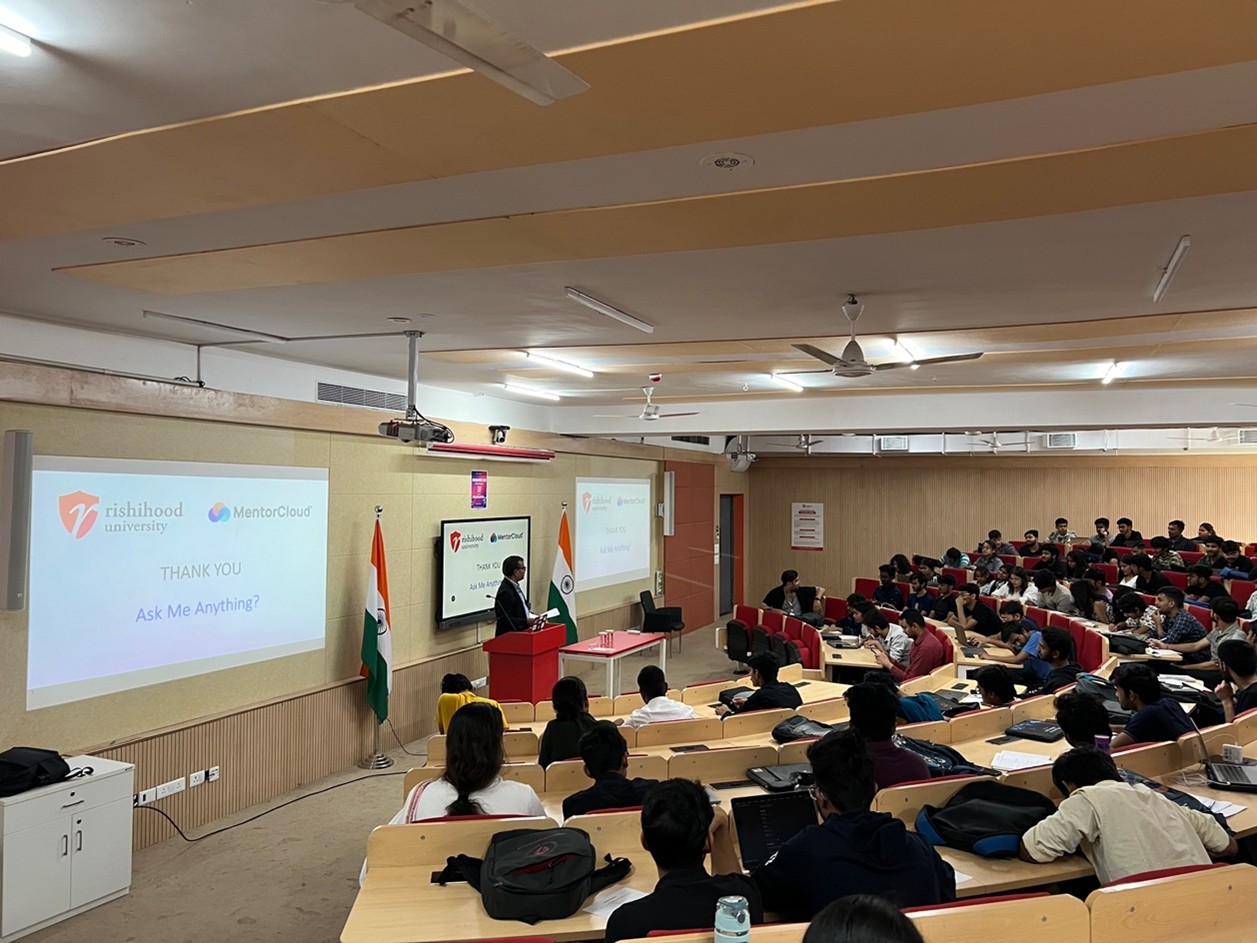
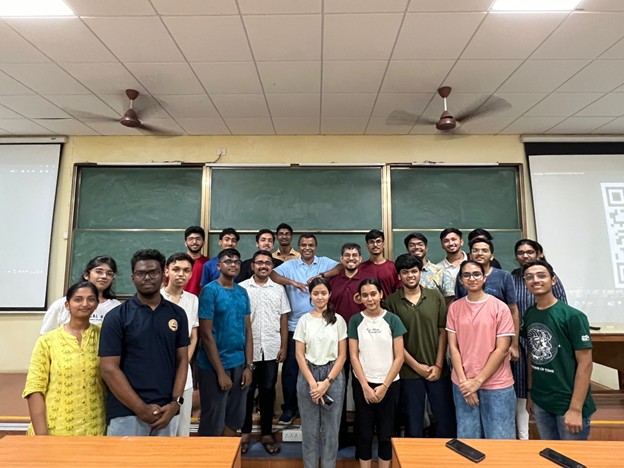
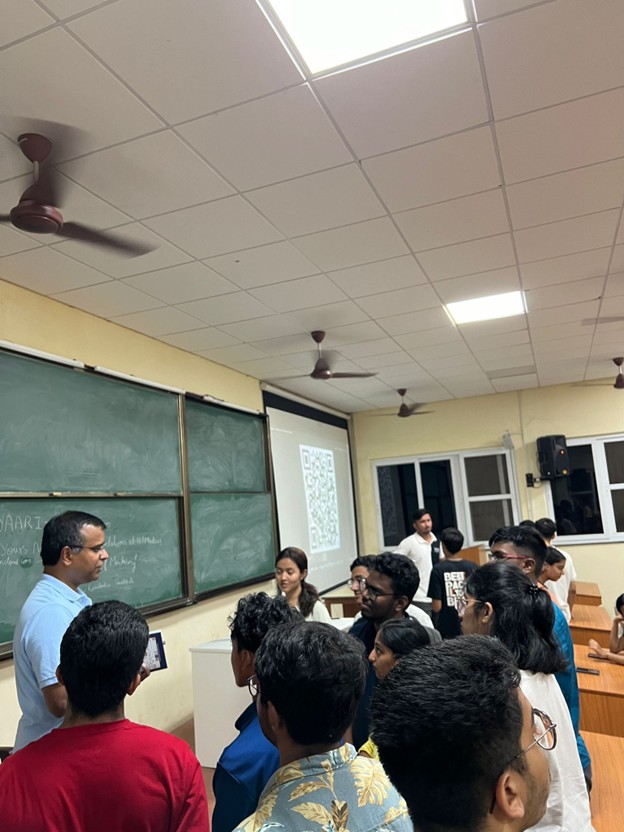
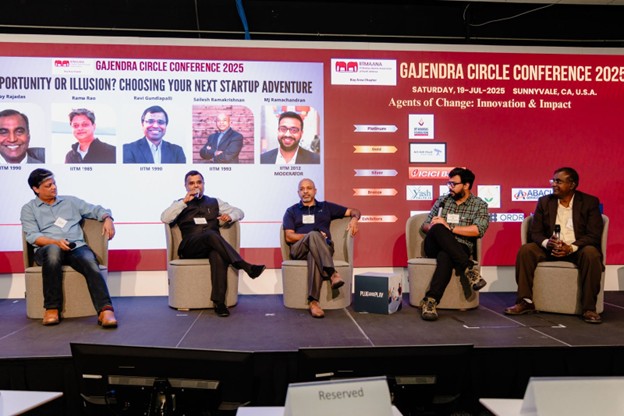
Maybach Foundation Interview Series Episode 5: Erkenntnisse von Dr. Ravi Gundlapalli
Dr. Ravi Gundlapalli ist Gründer und CEO von MentorCloud. Sein Lebenswerk besteht darin, Menschen durch die Kraft des Mentorings dabei zu unterstützen, ihr volles Potenzial zu entfalten. Mit einem Hintergrund in Ingenieurwesen und globaler Führung verbindet er technisches Fachwissen mit einer tiefen Leidenschaft für menschliches Wachstum. MentorCloud vernetzt Menschen in über 100 Ländern und wächst stetig als globale Bewegung.
Wir haben Ravi zu diesem Interview eingeladen, weil wir stolz auf unsere Zusammenarbeit sind. Unser gemeinsames Handeln basiert auf dem Glauben an den Wert von Mentoring. Für die Maybach Foundation ist Mentoring seit jeher ein Weg, das visionäre Denken weiterzutragen und Menschen zu fördern, die wie Wilhelm und Karl Maybach danach streben, einen bedeutungsvollen Beitrag zu leisten.
In diesem Gespräch erzählt Ravi seine persönliche Geschichte und die Erfahrungen, die seine Mission geprägt haben. Er spricht über die Kraft von Mentoring, Leben zu verändern und stärkere, engere Gemeinschaften aufzubauen. Seine Vision ist mutig und von Sinn getragen.
Das Interview zwischen der Maybach Foundation (MF) und Dr. Ravi Gundlapalli (RG):
MF: Sie haben Ihr Leben dem Mentoring gewidmet und unterstützen Menschen darin, ihr Potenzial zu entfalten. Was hat diese Leidenschaft ursprünglich geweckt? Gab es einen besonderen Moment oder eine Person, die Sie auf diesen Weg gebracht hat?
RG: Schon früh in meinem Leben hatte ich das Bedürfnis, etwas zurückzugeben. Als Pfadfinder habe ich gedient und bereits in der Schule meine Mitschüler unterrichtet, weil ich überzeugt war: Wer anderen etwas erklärt, lernt selbst am tiefsten. Aber der Moment, der mich wirklich auf diesen Weg gebracht hat, war eine Nahtoderfahrung. In den späten 2000er Jahren war ich in Mumbai in einem Flugzeug, das beim Start beinahe mit einem Hubschrauber kollidierte, in dem die damalige indische Präsidentin Pratibha Patil saß.
Unser Pilot bemerkte im letzten Augenblick, dass der Hubschrauber auf derselben Landebahn landete, und konnte in weniger als 1,2 Sekunden eine Katastrophe verhindern. Ich hatte das große Glück, weiterzuleben und begann sofort zu reflektieren: Warum habe ich dieses zusätzliche Leben geschenkt bekommen? Welche Aufgabe war noch unerfüllt?
In den Nachrichten am nächsten Tag wurde nur berichtet, dass die Präsidentin gerettet wurde. Ich fragte mich: „Warum spricht niemand davon, dass auch Dr. Ravi Gundlapalli gerettet wurde?“ Das war der Auslöser für meine innere Suche. Wenige Wochen später kam ich auf die Idee, den Fluss menschlicher Weisheit zu strukturieren.
Das passte zu meinem Hintergrund. Ich habe einen Doktortitel in Strömungsmechanik, wo ich den Fluss von Flüssigkeiten analysierte. In der Logistik habe ich mich mit Warenströmen beschäftigt. Da war es fast folgerichtig, den Fluss von Weisheit in den Mittelpunkt zu stellen, nur eben zwischen Menschen.
Kurz darauf begegnete ich einem meiner ersten Mentees: Srikanth Bolla, ein 17-jähriger blinder Schüler mit dem Traum, am MIT in Cambridge zu studieren. Ich konnte ihn unterstützen, er wurde angenommen, schloss mit Auszeichnung ab und ist heute ein erfolgreicher Unternehmer.
Da habe ich die Magie gespürt: Wenn Weisheit von Menschen, die sie besitzen, an jene fließt, die sie brauchen, entstehen Wunder. Diese Beinahe-Katastrophe im Flugzeug und gleich darauf die Begegnung mit Srikanth waren die Schlüsselmomente, die meinen Weg bestimmt haben.
MF: Sie haben mit MentorCloud eine kraftvolle Vision aufgebaut. Was bedeutet Mentoring für Sie und warum ist es so transformativ?
RG: Für mich ist Mentoring der Mensch zu Mensch Transfer von Weisheit. Menschen haben schon immer in Gemeinschaften gelebt und ihr Wissen miteinander geteilt. Dieses Grundprinzip macht uns zutiefst menschlich. Mentoring ist deshalb so transformativ, weil es Menschen verbindet und einen Rahmen schafft, in dem Lebenserfahrungen und Erkenntnisse weitergegeben werden, von jemandem, der sich wirklich für den anderen interessiert.
Mentoring ist also kein bloßes Teilen von Informationen auf sozialen Medien, sondern share and care. Ein Mentor teilt sein Wissen mit jemandem, dem er wirklich etwas bedeutet. Und für den Mentee geht es darum, zu vertrauen und das Wissen anzuwenden.
MF: Die Zusammenarbeit zwischen der Maybach Foundation und MentorCloud steht noch am Anfang. Wo sehen Sie uns in fünf Jahren?
RG: Ich empfinde es als großes Glück, dass sich unsere Wege gekreuzt haben. Als ich das Buch der Maybach Foundation über Mentoring gelesen habe und es mit meinem eigenen The Art of Mentoring verglich, war sofort klar: Wir sind geistig und in unserer Mission verbunden.
Ich sehe uns als gemeinsame Botschafter für Mentoring und menschliche Transformation mit dem Ziel, Mentoring in großem Maßstab möglich zu machen. Denn Mentoring im großen Maßstab bedeutet Transformation im großen Maßstab.
Mein Ziel für die nächsten fünf Jahre ist es, 10 Millionen Leben zu verändern. Das schaffen wir durch gemeinsame Initiativen, strategische Partnerschaften, Investoren und Kollaborationen. Die Maybach Foundation konzentriert sich bereits auf wichtige Themen wie Obdachlosigkeit, Rückfallprävention und Zugang zur Hochschulbildung. In all diesen Feldern können Mentoren enorm viel bewirken. Mit einer Technologieplattform wie MentorCloud können wir diese Wirkung vervielfachen.
MF: Künstliche Intelligenz verändert rasant unser Leben und Arbeiten. Wie wird sie das Mentoring beeinflussen und wie stellen wir sicher, dass sie echte menschliche Verbindung vertieft statt ersetzt?
RG: Mein Ansatz lautet: AI soll Menschen erhöhen, nicht ersetzen. Sie ist ein großartiges Werkzeug, um uns noch menschlicher sein zu lassen.
Wir nutzen AI, um die Profilierung einfacher zu machen, sodass Mentoren und Mentees präziser zueinanderfinden. AI unterstützt zudem mit Inhalten, Erinnerungen und Tools, damit sich die Menschen ganz auf den Wissensaustausch und den Vertrauensaufbau konzentrieren können.
Ich habe sogar ein digitales Abbild meiner selbst geschaffen, einen Avatar Ravi, gespeist mit meinen Büchern, Blogs und Podcasts. So können auch dann Fragen beantwortet werden, wenn ich selbst keine Zeit habe. Solche Anwendungen eröffnen die Möglichkeit, Wissen breiter verfügbar zu machen.
Und gleichzeitig hoffe ich, dass Menschen die durch AI gewonnene Zeit nutzen, um Freundschaften zu pflegen, jemanden zu umarmen oder Empathie zu zeigen, Dinge, die nur Menschen können.
MF: Welchen Rat geben Sie jungen Menschen mit großen Träumen, aber wenig Ressourcen?
RG: Mein Rat lautet: Träumt groß. Heute gibt es einen Überfluss an Online-Ressourcen, Kursen und Tools, vieles kostenlos. Man kann programmieren lernen, Design verstehen oder ganze Studiengänge absolvieren, ohne Geld auszugeben.
Genauso wichtig: Netzwerken. Sichtbare Menschen werden wahrgenommen. Geht raus, besucht Veranstaltungen, engagiert euch ehrenamtlich. Da entstehen Begegnungen, die Türen öffnen.
Also: lernt ständig weiter, baut Netzwerke auf, packt jede Gelegenheit beim Schopf. Das ist der Schlüssel, um eure Träume zu verwirklichen.
MF: Ein prägendes Beispiel ist Ihr Mentee Srikanth Bolla, der trotz seiner Blindheit CEO eines erfolgreichen Unternehmens wurde. Was bedeutet Ihnen diese Reise persönlich?
RG: Diese Mentoring Reise war für mich zutiefst transformierend. Srikanth hat mich gelehrt, den Unterschied zwischen Sehen und Vision zu verstehen. Er hat keine Augen, aber eine große Vision für sein Leben. Gleichzeitig habe ich so viele Menschen getroffen, die perfekt sehen, aber keine Vision haben.
Diese Erfahrung hat mich inspiriert, eine Technologie und Methodik zu entwickeln, mit der Millionen Menschen, ob sehfähig oder nicht, ihr volles Potenzial erreichen können.
MF: Bei unserem kommenden Event geht es um Mentoring in Organisationen. Wie kann Mentoring Ihrer Erfahrung nach helfen, Talente zu gewinnen und zu halten?
RG: Alle Studien zeigen: Mentoring wirkt. Wenn neue Mitarbeitende erfahrene Führungskräfte an ihrer Seite haben, entsteht Zugehörigkeit, Wissen wird weitergegeben, Zusammenarbeit wächst.
Die Herausforderung ist die Skalierung. Hier bietet MentorCloud eine große Chance: Menschen weltweit so miteinander zu verbinden, dass sie voneinander lernen können. Das steigert Bindung, Produktivität und letztlich auch den Unternehmenserfolg.
MF: Für Führungskräfte, die neu in Mentoring Programmen sind: Was ist ein kleiner erster Schritt, der langfristig viel bewirken kann?
RG: Machen Sie sich einfach verfügbar, eine Stunde im Monat, im Quartal oder auch nur für eine einzige Person. Fangen Sie klein an. Mentoring ist wie Eis. Man kann den Geschmack beschreiben, aber verstehen wird man ihn erst beim ersten Löffel.
Die Magie entfaltet sich, wenn Sie sehen, wie andere dank Ihres Beitrags aufblühen. Und es lohnt sich auch ganz persönlich. Mentoren entwickeln sich schneller, bauen ihre Reputation auf, werden häufiger befördert.
MF: Wenn Menschen nach Ihrem Vortrag nach Hause gehen, was sollen sie am meisten im Gedächtnis behalten?
RG: Dass Mentoring zutiefst menschlich ist. Es ist keine Raketenwissenschaft, man braucht kein Handbuch. Es geht einfach darum, Wissen mit Menschen zu teilen, die einem wichtig sind.
Die Frage, die alle mitnehmen sollten, lautet: Wen in meinem Umfeld kann ich ein Licht anzünden?
MF: Maybach hat eine lange Verbindung zu Indien und kürzlich fand dort ein Event statt, bei dem die Marke erneut im Mittelpunkt stand. Als Inder, was bedeutet Ihnen das?
RG: Indien gilt als Ursprung des Mentorings, mit einer über 10.000-jährigen Tradition. Schon alte Schriften unterscheiden zwischen einem Lehrer, der das Wie vermittelt, und einem Mentor, der das Wann und Warum lehrt.
Dass Maybach in Indien präsent war, erfüllt mich mit Freude. Denn auch Maybach verkörpert Mentoring seit Generationen. Wilhelm Maybach war selbst ein Mentee und wurde später Mentor für viele.
Dieses parallele Erbe verbindet uns. Indien konnte trotz Kriegen und Fremdherrschaft seine Kultur durch Mensch zu Mensch Weitergabe von Wissen bewahren. Maybach hat über Generationen dasselbe getan, ein lebendiges Vermächtnis statt ein Museumsstück.
Darum sehe ich großes Potenzial in unserer Zusammenarbeit.
MF: Ravi, vielen Dank, dass Sie Ihre Geschichte und Ihre Einsichten mit uns geteilt haben. Wir sind geehrt, mit Ihnen zusammenzuarbeiten, und schätzen die Wirkung Ihrer Arbeit sehr. Wir freuen uns auf den weiteren Weg und darauf, Ihre Vision für ein globales Mentoring Wirklichkeit werden zu sehen. Wir wünschen Ihnen weiterhin viel Erfolg.




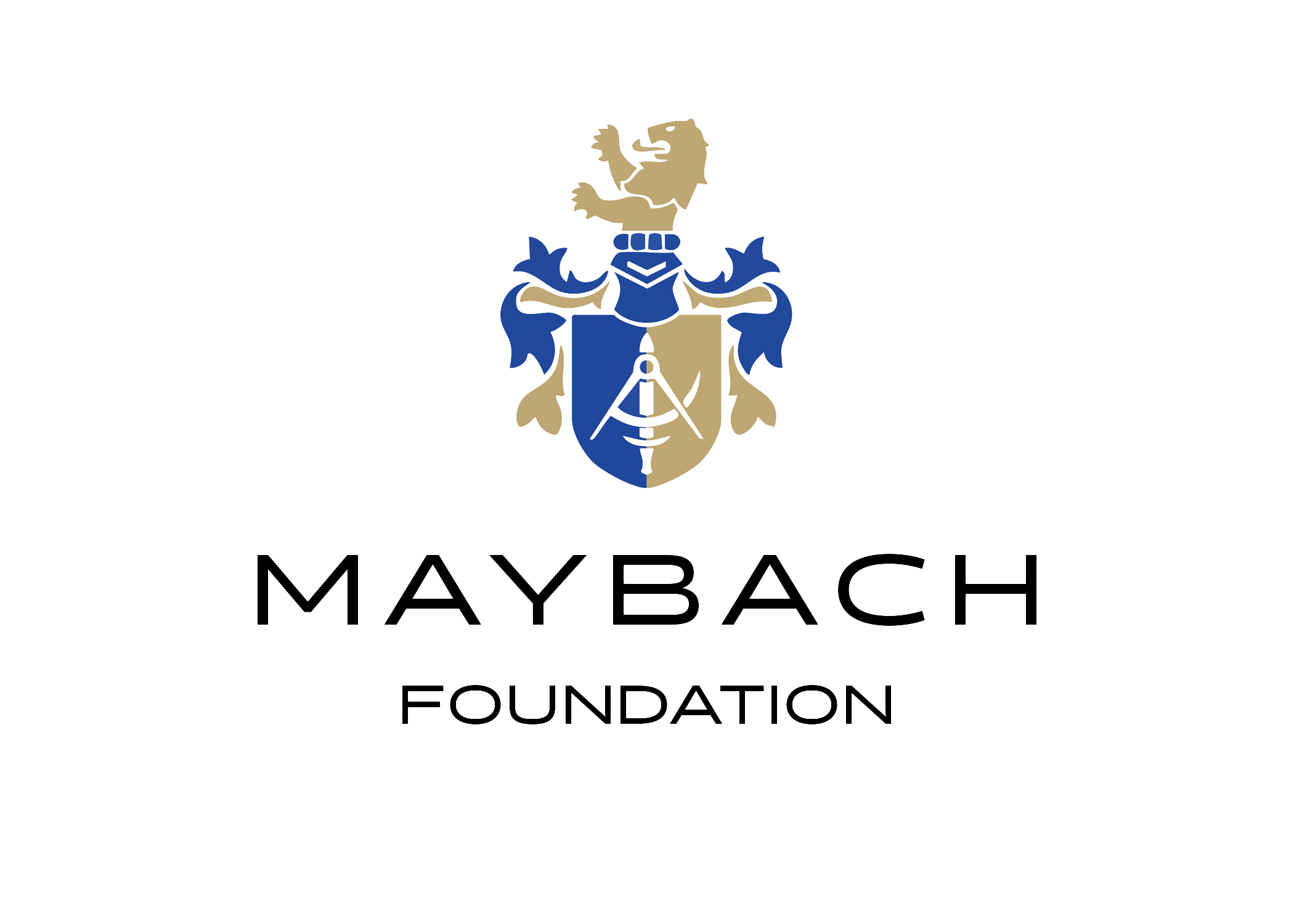
Leave a Reply